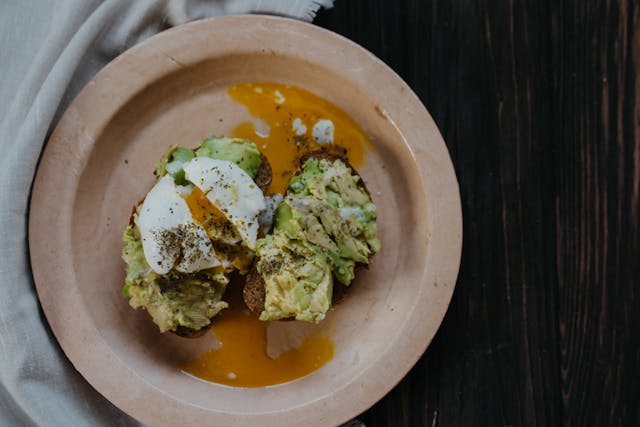
Famous for its health benefits, such as a decreased risk of cardiovascular disease, enhanced cognitive function, and greater longevity, the Mediterranean diet is based on the traditional eating habits of people from countries bordering the Mediterranean Sea. The diet incorporates a wide range of nutrient-dense foods and places an emphasis on eating them in their whole, minimally processed forms. The nine components of a healthy Mediterranean diet are as follows:
1. Abundance of Fruits and Vegetables
The Mediterranean diet relies heavily on fresh produce. In addition to promoting general health and warding off chronic diseases, their high vitamin, mineral, antioxidant, and fiber content is a major plus. For optimal freshness and nutrient density, choose for seasonal and locally grown vegetables.
2. Whole Grains
The Mediterranean diet is characterized by its heavy use of whole grains, including brown rice, oats, barley, and whole wheat. The minerals and fiber in these grains are better preserved because they have not been refined as much. They aid digestion and supply a constant stream of energy.
3. Healthy Fats, Particularly Olive Oil
When following a Mediterranean diet, olive oil should be your main source of fat. Olive oil has many health benefits, such as a decreased risk of inflammation and heart disease, thanks to its rich content of monounsaturated fats and antioxidants. You can find it on the menu, in salad dressings, and even on toast.
4. Nuts and Seeds
The nutritious fats, protein, fiber, and minerals found in nuts and seeds inspired their inclusion. As an example, flaxseeds, sunflower seeds, walnuts, and almonds are popular options. Snacks, salads, or other foodstuffs are common ways to eat them.
5. Moderate Intake of Fish and Seafood
Protein and heart- and brain-healthy omega-3 fatty acids are abundant in seafood and fish. At least twice weekly, adherents to the diet eat fatty fish like mackerel, sardines, and salmon.
6. Limited Red Meat and Dairy Consumption
Mediterranean diets often limit red meat consumption to no more than a couple servings per month. Moderation is key when it comes to chicken and dairy products like yogurt and cheese. Fermented dairy products are usually made from sheep or goats instead of cows.
7. Beans and Legumes
Legumes and beans, including black beans, chickpeas, and lentils, form an important part of the Mediterranean diet’s protein profile. In addition to being a satisfying and healthy choice, they are abundant in fiber, vitamins, and minerals. You can find them in many different recipes, including as salads, stews, and soups.
8. Herbs and Spices Instead of Salt
Mediterranean cuisine relies heavily on aromatic herbs and spices rather than salt to bring out its flavors. Garlic, rosemary, basil, oregano, and thyme are among the most popular spices and herbs. Not only do they improve the flavor, but their antioxidant qualities also make them good for you.
9. Moderate Wine Consumption
One more thing you’ll notice about the Mediterranean diet is that they drink wine moderately, especially red wine. When paired with food, it is usually appreciated moderately. Resveratrol and other antioxidants found in red wine may help keep heart health in check. Consumption of wine is voluntary and should be approached with moderation.
Conclusion
A way of life that promotes moderation, diversity, and balance, the Mediterranean diet is more than simply food. The Mediterranean diet is beneficial to health because it emphasizes nutrient-dense whole foods and good fats while reducing sugar, processed foods, and red meat. It is often considered one of the healthiest eating plans because of its emphasis on slow and social eating, regular exercise, and awareness of one’s food intake.

